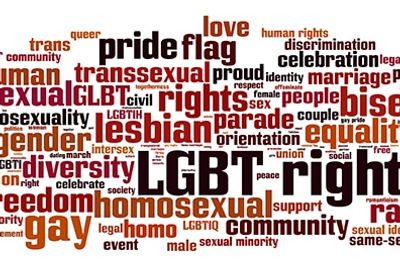U.S. Supreme Court will weigh in on whether LGBTQ people can be fired because of their identities
By Steve Kilar, June 2019 Issue.
At a Chili’s
restaurant in West Phoenix, a manager told Meagan Hunter last year that if she
wanted to be promoted from server to shift leader she needed to “dress more
gender appropriate.”
“Are you telling me that I need to have my
breasts hanging out to be successful in your company?” responded Meagan.
“Not in those words,” he replied.
But it was clear to Meagan, who is a
lesbian, what he meant. He wanted her to dress more stereotypically feminine in
exchange for the higher-paying job. Meagan later learned that manager also did
not consider her for a bartender position because he thought a lesbian
bartender would not draw desirable customers.
“I couldn’t continue to work at a place
where my willingness to conform to a stereotype was more important than my job
performance,” Meagan wrote in a testimonial posted on the ACLU’s website. “So,
I left a job that I enjoyed and said goodbye to the coworkers I considered
family.”
With the ACLU’s help, Meagan filed an
employment discrimination claim with the U.S. Equal Employment Opportunity
Commission, which enforces federal employment discrimination laws.
The legal merit of discrimination claims
like Meagan’s — those based on the sexual orientation or gender identity of the
employee — will be determined during the next U.S. Supreme Court term. The
Supreme Court recently decided to hear three cases about discrimination against
LGBTQ employees.
Title VII, a portion of the Civil Rights
Act of 1964, makes it unlawful for businesses with more than 15 workers to
discriminate against employees based on race, skin color, religion, national
origin and sex. Sex discrimination includes discrimination based on gender
identity and sexual orientation, according to the EEOC and some federal courts.
The idea that
sexual orientation and gender identity discrimination are forms of sex
discrimination may seem obvious to LGBTQ people and their allies. But the
notion that sex discrimination under current federal law includes sexual
orientation and gender identity discrimination is still up for debate. The
Trump administration has sided with businesses that want to discriminate
against LGBTQ people, arguing in federal sex discrimination cases that being
queer can be considered a fireable offense.
There’s a lot riding on the Supreme Court’s
decision, both for individuals and for LGBTQ people as a collective.
For Meagan, losing her job meant a
significant income decline, which made it more difficult to support herself and
her son. Although she was able to get a server position at another restaurant
within a few weeks, newer employees are scheduled to work fewer hours. It will
take time to build up the seniority she had at Chili’s, where she was a highly
rated employee. Meagan had to put her plans for buying her first home on hold.
Aimee Stephens, whose discrimination case
will be considered by the Supreme Court, and her wife had to rely on a single
income to support themselves and their daughter, who was in college. They had
to sell belongings to pay their bills. Aimee, who was fired from her job as a
funeral director after she came out as transgender, also lost her health
insurance and was forced to find other ways to pay for expensive medical care.
“I had given almost seven years of my life
to the funeral home, offering countless families comfort when they needed it
most,” Aimee wrote in a blog post shared by the ACLU, which is representing her
before the Supreme Court. “Being discarded so coldly was hard to understand.”
For LGBTQ people collectively, the outcome
of the Supreme Court decision may impact more than the ability to bring a
federal employment discrimination claim. A determination that sex
discrimination in the employment context does not cover sexual orientation or
gender identity discrimination may ripple into other areas of nondiscrimination
law.
“If federal law says it’s fine to fire
someone because she’s lesbian or transgender, other federal civil rights laws
may well not protect LGBTQ people, either,” wrote James Esseks, the director of
the ACLU’s LGBT & HIV Project. “The federal education anti-discrimination
law may not stop schools from harassing transgender students. The Federal
Housing Act may not stop landlords from evicting same-sex couples. And the
Affordable Care Act may not prevent health care providers from turning away
transgender people.”
We’re not likely to know the Supreme
Court’s stance on employment discrimination against LGBTQ people before June
2020. I hope a majority of the justices realize that no one should have to live
in fear that they can be fired just because of who they are.
In the
meantime, we need to keep fighting for explicit laws barring sexual orientation
and gender identity discrimination. Having these laws at the state and federal
levels will establish unambiguous protections for LGBTQ people.
